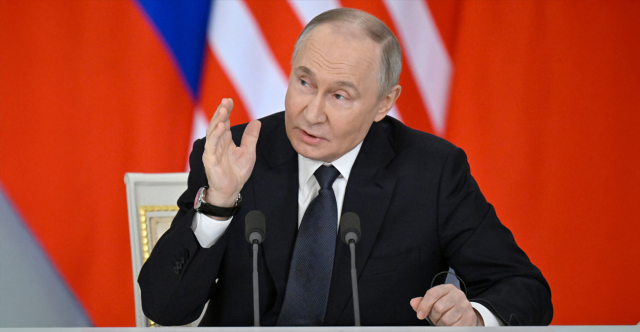Today could have marked a pivotal moment in the 21st century, potentially signaling the end of one of the world’s most significant wars. However, on May 15 in Constantinople, it appears nothing substantive will occur. According to the official list from the Russian mission, the event will mirror a meeting in the same city in 2022—shortly after Russia’s invasion of Ukraine—which resulted in no meaningful dialogue.
The Kremlin’s recent announcement includes individuals who lack the influence, expertise, and credibility needed to progress towards peace in Eastern Europe. Some view this as a blatant act of “mockery” by Russia, particularly since Vladimir Medinsky, the envoy appointed to lead the mission, is the same individual who conveyed messages from Vladimir Putin in 2022 and received only prolonged conflict, casualties, and global isolation in return.
Medinsky, who chairs the Interdepartmental Committee for Historical Education in Russia, previously served as the country’s Minister of Education from 2012 to 2020, but lacks a notable diplomatic background. He has been one of Moscow’s most “neutral” figures during the early stages of the war. Alongside Medinsky, the mission features Mikhail Galuzin, Igor Kostyukov, and Alexander Formin. While Galuzin and Formin hold positions as Russia’s undersecretaries of state for foreign affairs and defense, they are insufficient representatives for a summit with influential figures like the President of Ukraine and the U.S. Secretary of State.
This latest move demonstrates Russia’s ongoing reluctance to engage in serious discussions about ending the war, as it seeks to undermine any U.S. efforts to find a viable compromise or a modest yet meaningful start to peace talks.
It’s unlikely that Ukrainian President Zelensky will attend today’s meeting in Turkey, as he has stated that his participation depends on the Russian President’s involvement, casting doubt on the likelihood of former President Trump attending as well. Trump had hinted at a possible visit to Turkey for productive discussions with Zelensky and Tayyip Erdogan.
With this strategy, Moscow appears to have set a low expectation for any outcomes from these discussions, indicating a consistent pattern of avoiding U.S. proposals aimed at gradually de-escalating the situation.
The proposed 30-day ceasefire is one area where there may be common ground, but given the current circumstances, even this positive step seems doubtful. U.S. diplomacy, particularly by Secretary of State Rubio, has been left unsettled by Russia’s announcement of its mission to Turkey, made just as Rubio was departing from Trump’s side during his three-day tour of Saudi Arabia and the Emirates.
Although Rubio initiated the meeting and intends to be present, he may not be able to participate in the negotiations he hoped for, which would have built on the first diplomatic summit in Saudi Arabia over a year ago.
It remains uncertain what actions Rubio will take, especially with Trump recently suggesting he might impose further sanctions on Russia’s energy sector. Regardless, since his return to the diplomatic stage, Moscow has shown no willingness to pursue a resolution to a conflict that has inflicted considerable devastation comparable to World War II.
Ask me anything
Explore related questions

















